ANDREW C. SOBEL is associate professor of political science at Washington University in St. Louis. He is the author of several books, including, most recently, Political Economy and Global Affairs.
The University of Chicago Press, Chicago 60637
The University of Chicago Press, Ltd., London
2012 by The University of Chicago
All rights reserved. Published 2012.
Printed in the United States of America
21 20 19 18 17 16 15 14 13 12 1 2 3 4 5
ISBN-13: 978-0-226-76759-8 (cloth)
ISBN-13: 978-0-226-76760-4 (paper)
ISBN-10: 0-226-76759-0 (cloth)
ISBN-10: 0-226-76760-4 (paper)
ISBN-13: 978-0-226-76761-1 (e-book)
Library of Congress Cataloging-in-Publication Data
Sobel, Andrew Carl, 1953author.
Birth of hegemony : crisis, financial revolution, and emerging global networks / Andrew C. Sobel.
pages cm
Includes bibliographical references and index.
ISBN-13: 978-0-226-76759-8 (cloth: alkaline paper)
ISBN-10: 0-226-76759-0 (cloth : alkaline paper)
ISBN-13: 978-0-226-76760-4 (paperback. : alkaline paper)
ISBN-10: 0-226-76760-4 (paperback : alkaline paper) 1. Hegemony. 2. International relations. I. Title.
JZ1312.S63 2012
327.101dc23
2011047459

This paper meets the requirements of ANSI/NISO Z39.48-1992 (Permanence of Paper).
Birth of Hegemony
Crisis, Financial Revolution, and Emerging Global Networks
ANDREW C. SOBEL
THE UNIVERSITY OF CHICAGO PRESS
CHICAGO AND LONDON
FOR PAM, WHO HAS BEEN THE MOST IMPORTANT PART OF MY JOURNEY
Contents
CHAPTER 1
A Framework for the Development of Hegemonic Capacity
CHAPTER 2
Key Collective Goods for Hegemonic Capacity and Their Microfoundations
CHAPTER 3
The Dutch Revolt and Rise of Dutch Leadership in the 15001600s
CHAPTER 4
Creating a Financial Foundation for British Leadership in the Global Arena
CHAPTER 5
The Interwar Years, 19201930s: Was the United States Capable?
CHAPTER 6
US Leadership after World War II
CHAPTER 7
The Future of US Leadership in the Twenty-First Century and Potential Successors
Acknowledgments
This project connects the different phases of my academic life and research. There is a chain grounded in the political economy of global finance and microfoundations of social behavior that links together my research over twenty yearshopefully a coherent research program. I owe thanks to many people and institutions for their assistance, advice, and critical input at each stage of my academic training and career. They helped build the foundations that enabled this project. As mentors and teachers, Ken Organski, Harold (Jake) Jacobson, and Bob Axelrod at the University of Michigan exposed me to the academic study of international relations and different interpretations of hegemony and the importance of global leadership for cooperation, stability, and the improvement of the broader social welfare. Moreover, they were incredibly supportive of my research agenda in the political economy of global finance, even though most of my dissertation research fell beyond the boundaries of their research agendas. Gunter Dufey from the University of Michigans School of Business and John Jackson from the University of Michigans Political Science Department helped fill in the substantive guidance with their expertise in international finance and political economy, respectively. I cannot imagine a better group of mentors for an investigator in training, as they provided superb criticism and advice on my research agenda. They taught me much about becoming a substantive and rigorous political scientist in my field, and by their actions and examples they were role models about how to treat, respect, and help undergraduate and graduate students.
The 1980s was an exciting time in political science for research and discussions about global leadership. This was the period when investigators and pundits began to question the stability of US hegemonic capacity. Stagnation in the US and global economy, along with Japans economic success, caused many to wonder about the future of US leadership. This period spawned stimulating and influential work by investigators such as Paul Kennedy, Robert Keohane, Charles Kindleberger, and others about the prospects for US decline and continued cooperation necessary for liberal economic exchange absent a clear leader in the system. During my research interviews with Japanese bankers, government bureaucrats, and legislators, I kept noticing Paul Kennedys Rise and Fall of Great Powers on bookshelves.
After Michigan, I moved on to a post doc at the Center for Political Economy and the Department of Political Science at Washington University in St. Louis. The center and the Political Science Department were extremely influential in my academic evolution. Trained in the University of Michigan perspective, I did not know much about the program in St. Louis before I went there, but Jake told me I should embrace the opportunity because my intuitions about political behavior fit with that approach. As always, his counsel was on the money. My intuition about political behavior and strategic behavior overlapped with much of the Washington University agenda. Intensive interaction with colleagues and weekly seminars in the center furthered my academic development and helped me build a toolkit and a theoretical approach that appears throughout my research. Soon I was a qualitatively different political scientist. At the center I was fortunate to become a colleague of Doug North, Jack Knight, Gary Miller, Murray Weidenbaum, Art Denzau, and others from political science, economics, business, law, and anthropology. The input of these and other investigators at the center could not have been more supportive for an evolving young academic. The center, and its director, Doug North, had an incredible influence on my thinking and research.
During my years at Washington University, others were extremely helpful. John Spraguehis intellectual curiosity, endless enthusiasm, and moral compassreinforced the lessons I learned from my mentors at Michigan. He was, and continues to be, extraordinarily helpful in overcoming barriers to empirical analysis. His analytical creativity helped me time and time again. His enthusiasm was infectious. Gary Miller, Bill Lowry, and Itai Sened became fast friends and great colleagues. I enjoy going to work every day looking forward to conversations with Gary, Bill, and Itai. Some of these conversations are academic, others social, but they are always fun and interesting. I must mention the students at WU, both graduate and undergraduate. They are creative, smart, fun, and entertaining. Theyve kept me on my toes and made significant contributions to my research over the years. I try not to complain about my job, as it would be rude to others who are not as fortunate to work in such an environment with such colleagues and students.
Financial assistance from the Weidenbaum Center on the Economy, Government, and Public Policy ensured this project had sufficient resources. Steve Smith and Steve Fazzari, as director and associate director, provided aid to this and other projects. I relish my conversations with Murray Weidenbaum. They are always enlightening, thoughtful, and civil even as we approached many of the topics from very different parts of the political spectrum. Those conversations always brought me back to the implications of our research as social scientists for the policy arena. Gloria Lucy, Christine Moseley, and Melinda Warren, as the staff at the Weidenbaum Center, provide an infrastructure that enables investigators to focus on their substantive research agendas without getting sidetracked by the nuts and bolts of administrative affairs.

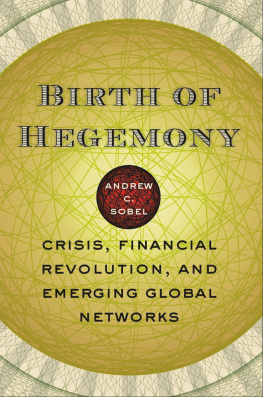

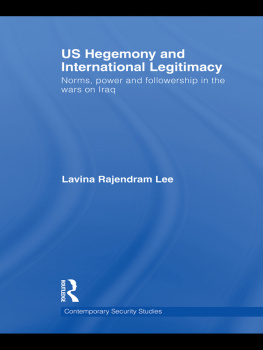
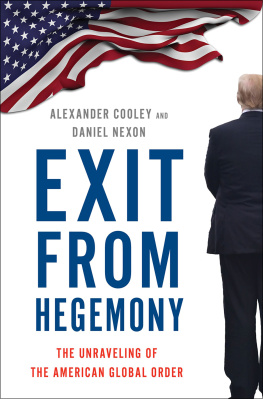
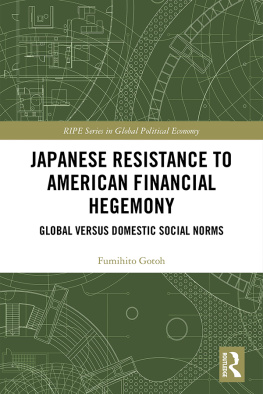
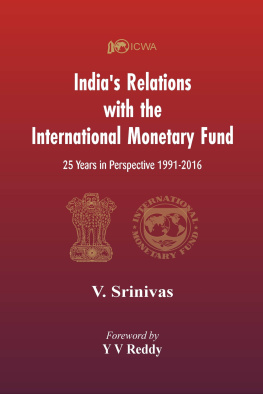
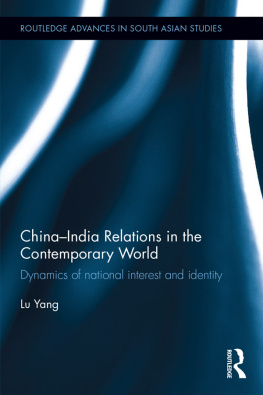
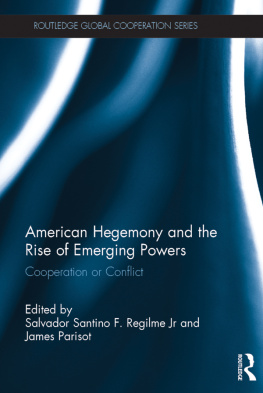
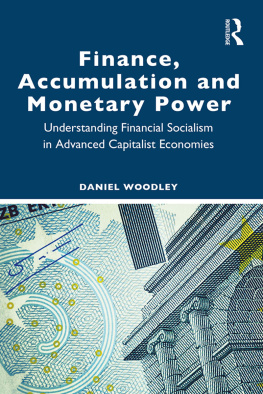
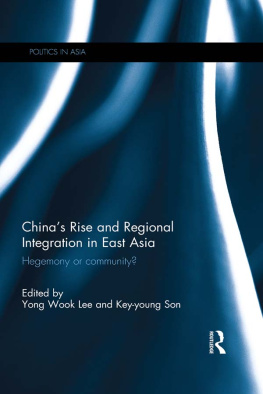
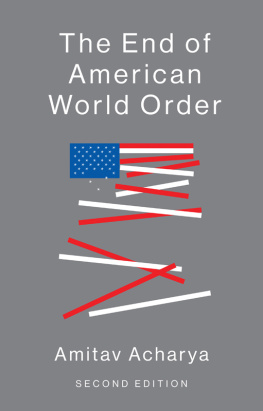
 This paper meets the requirements of ANSI/NISO Z39.48-1992 (Permanence of Paper).
This paper meets the requirements of ANSI/NISO Z39.48-1992 (Permanence of Paper).